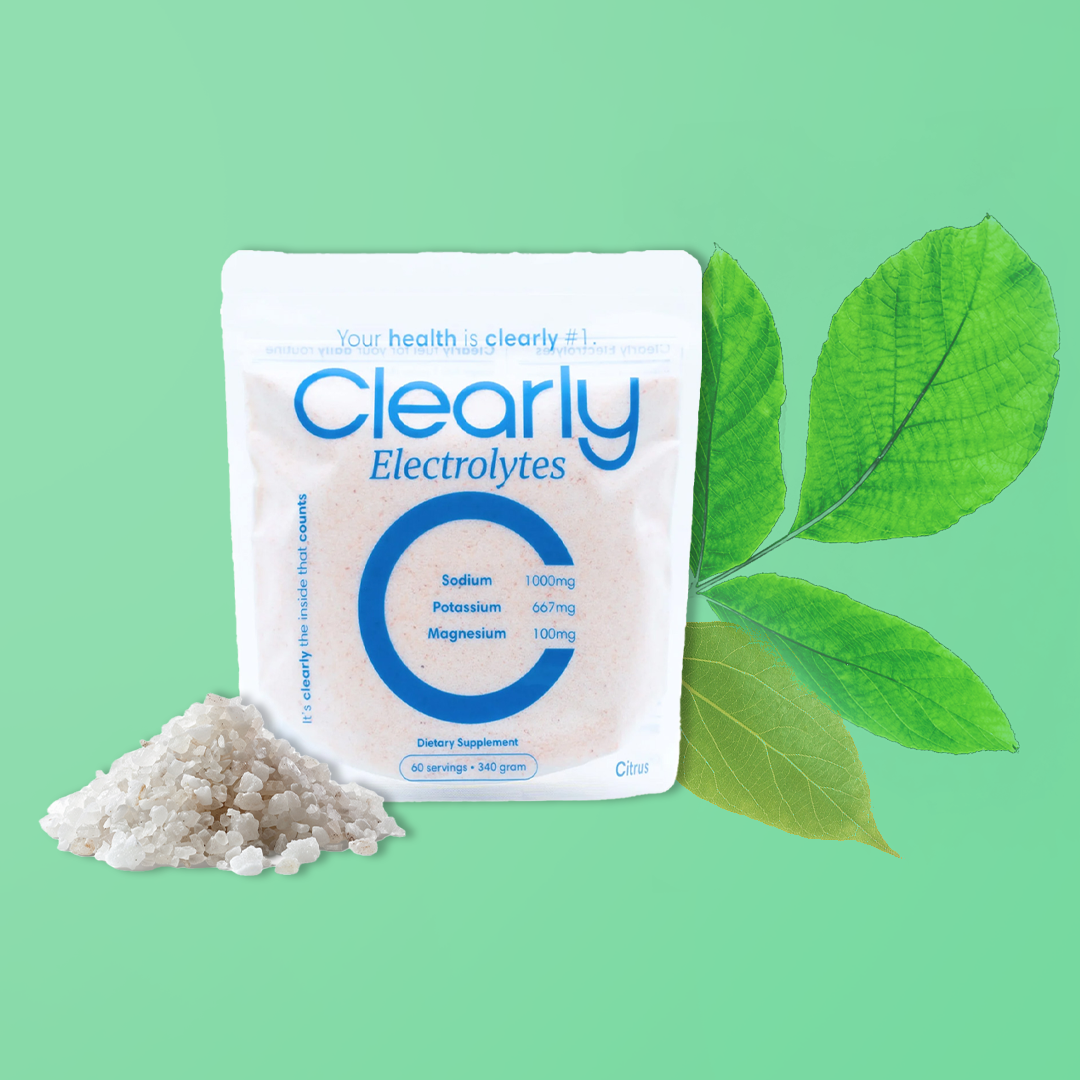Electrolytes play a crucial role in the proper functioning of your body. They are responsible for numerous vital processes, but in our modern world, it can be challenging to get enough. This is partly because our diets are often less rich in essential minerals, partly due to depleted agricultural lands and highly processed foods. In this article, you'll discover exactly what electrolytes are, why they're so important, and how you can ensure your body always gets enough of these vital substances.
Electrolytes are minerals that, when dissolved in water, carry an electrical charge. They are essential for many bodily functions, such as regulating fluid balance, supporting muscle function, and maintaining blood pH. The main electrolytes in our body are sodium, potassium, calcium, magnesium, chloride, phosphorus (phosphate), and bicarbonate.
Electrolytes perform several important functions:
Fluid Balance | Electrolytes like sodium and potassium ensure your body maintains the correct fluid levels, both inside and outside your cells.
Muscle function | Calcium, potassium, and magnesium are essential for muscle contraction and relaxation, including your heart muscle.
Nervous system | Electrolytes are necessary for the transmission of signals between nerve cells, which is important for movement, thought, and sensation.
Energy balance | Electrolytes help convert food into energy and store and transport energy in your body.
Blood pH | Electrolytes help keep your blood's acidity stable, which is important for the proper functioning of your organs.
Electrolytes occur naturally in many foods.
Sodium | out, pickles, pretzels
Potassium | bananas, potatoes, oranges, spinach
Magnesium | pumpkin seeds, spinach, Swiss chard
Calcium | milk, yogurt, green leafy vegetables, almonds
Why is it difficult to get enough electrolytes these days?
In our modern age, it has become more difficult to get enough electrolytes. This is due to our current diets, which are often based on highly processed foods that contain few essential nutrients. Furthermore, depleted agricultural lands and industrial processing methods have made fruits and vegetables less nutritious than they used to be. This makes it more important than ever to be aware of your electrolyte intake and replenish it as needed.
Replenishing electrolytes is especially important for athletes or people who sweat a lot, because you lose not only fluid but also electrolytes through sweat. It's recommended to consume 1.5 times the amount of fluid you sweat out during exercise. Especially when the temperature is above 30 degrees Celsius and you're exercising intensively, you can sweat so much that you become deficient in fluids and electrolytes. This can lead to headaches or nausea.
How do you replenish electrolytes?
Dietary supplements | Supplementation can be an effective way to quickly obtain the necessary minerals, especially after intense physical exertion.
Sports drinks | While not always necessary, isotonic drinks can help quickly replenish both fluids and electrolytes, especially during long or intense sports activities.
Diet : You can get plenty of electrolytes through your daily diet. Eat a varied diet with plenty of vegetables, fruit, nuts, and dairy. Eat organic (unsprayed) food as much as possible.
Tip: For truly clean fruits and vegetables, use the Aquapure Purifier . This handy gadget removes pesticides, bacteria, and other harmful substances from your fruits and vegetables.









